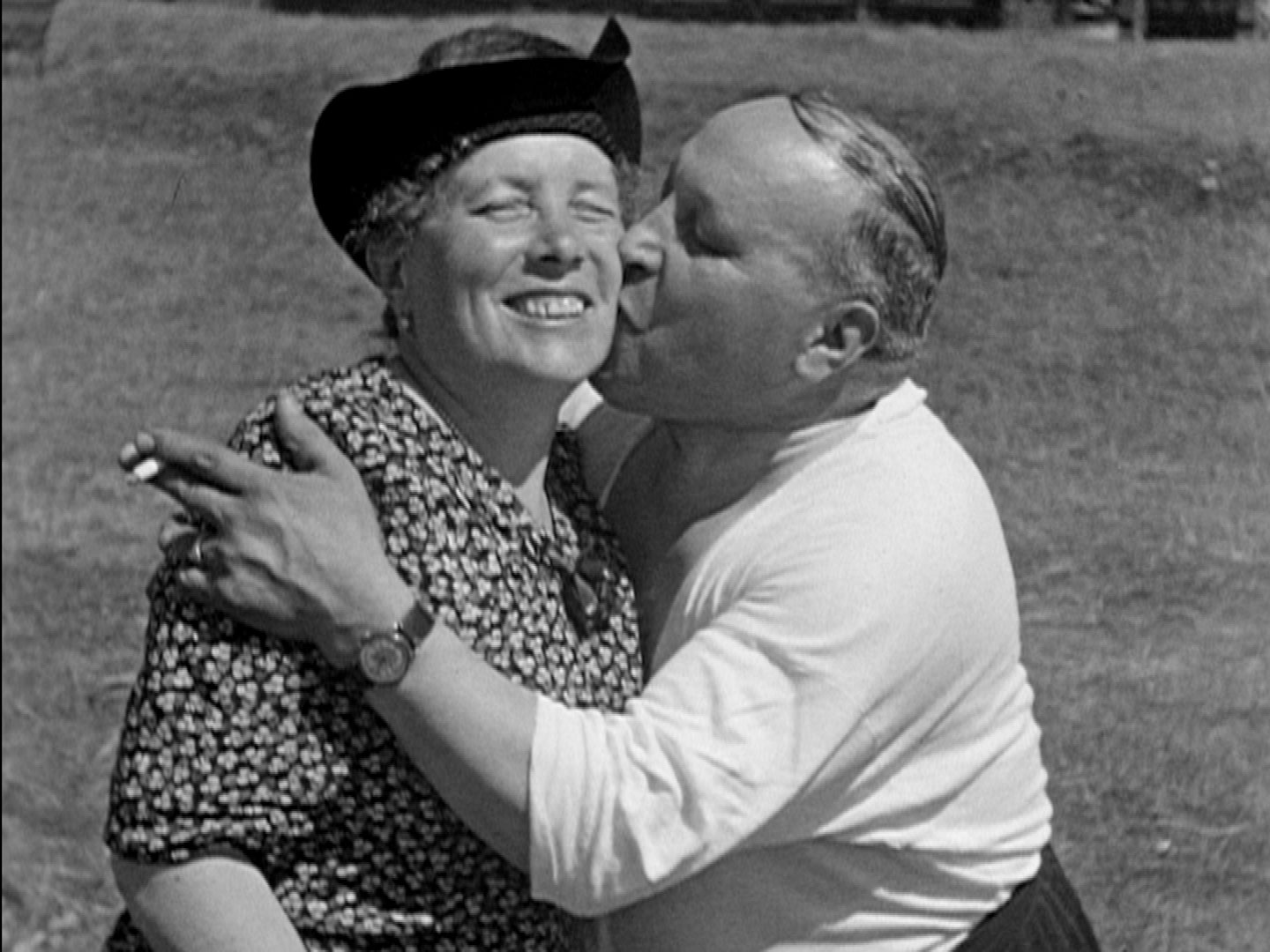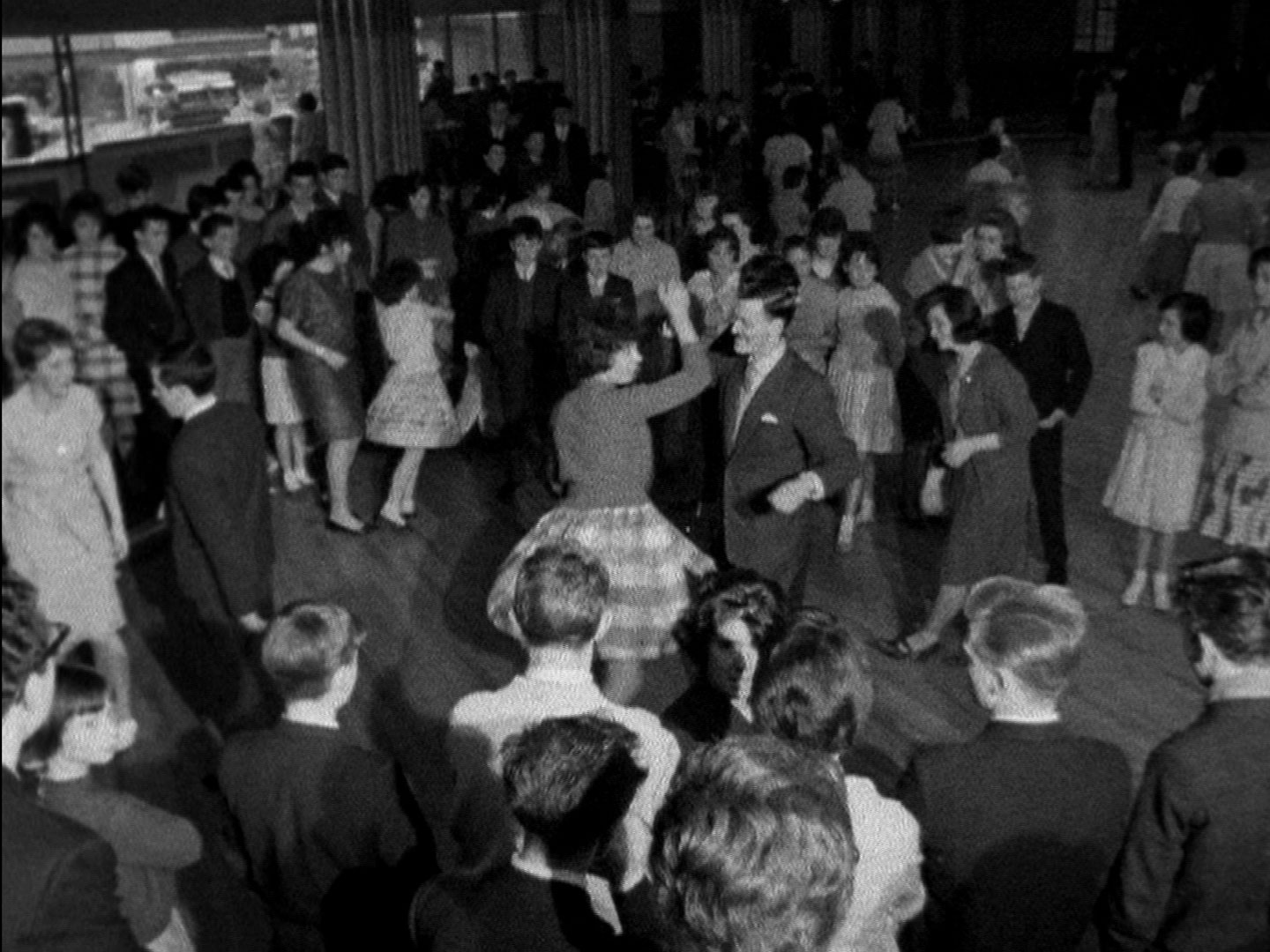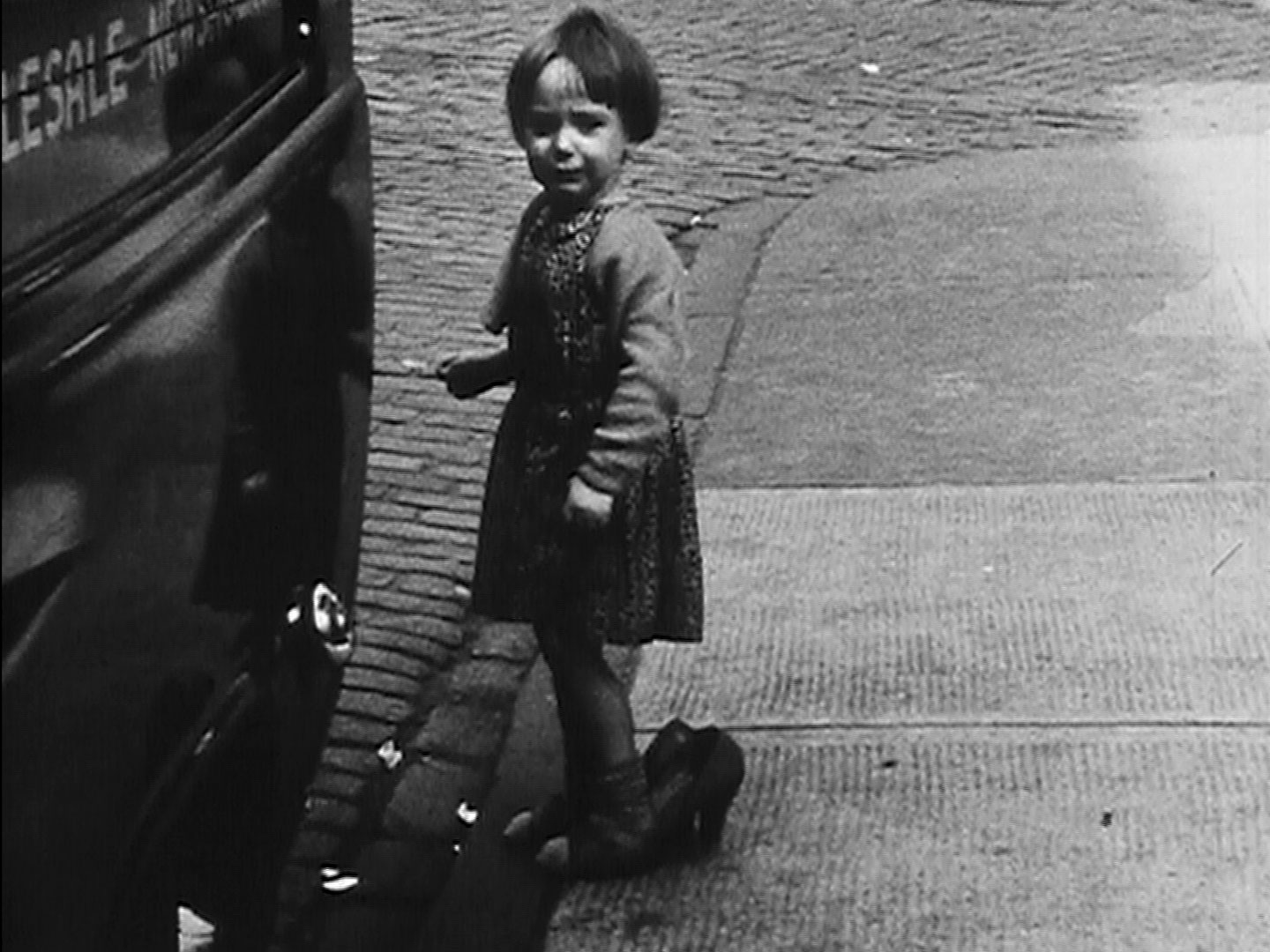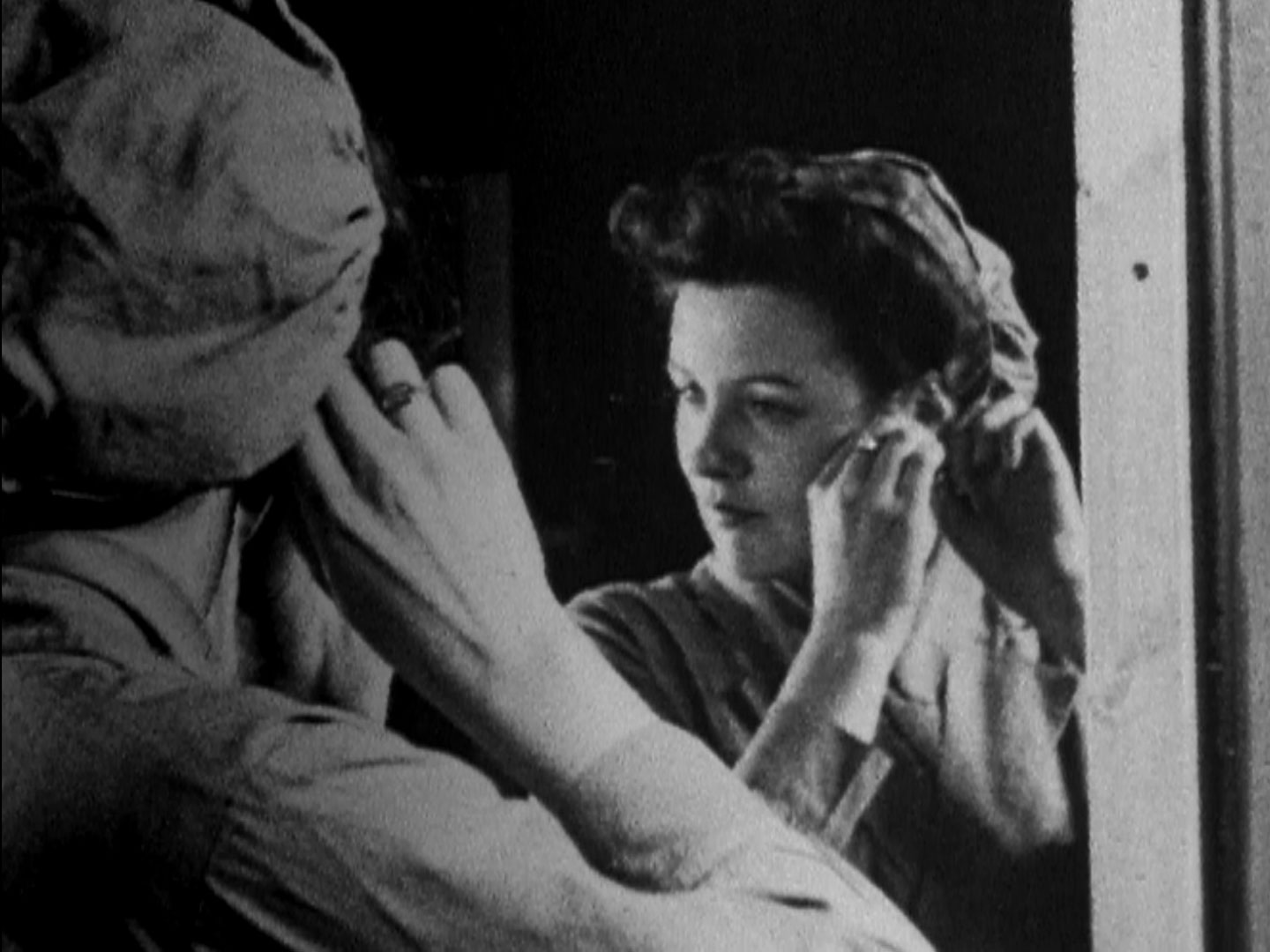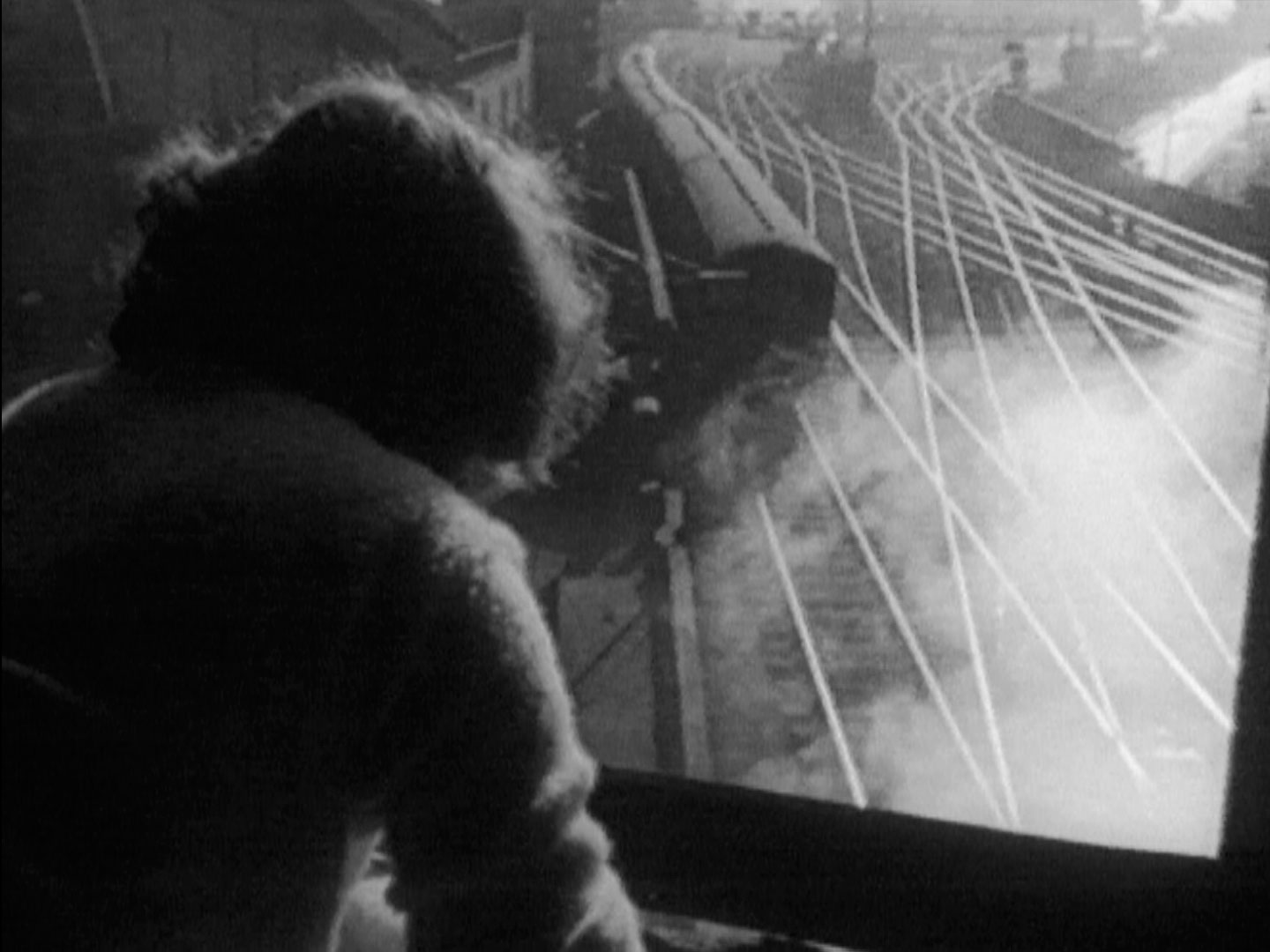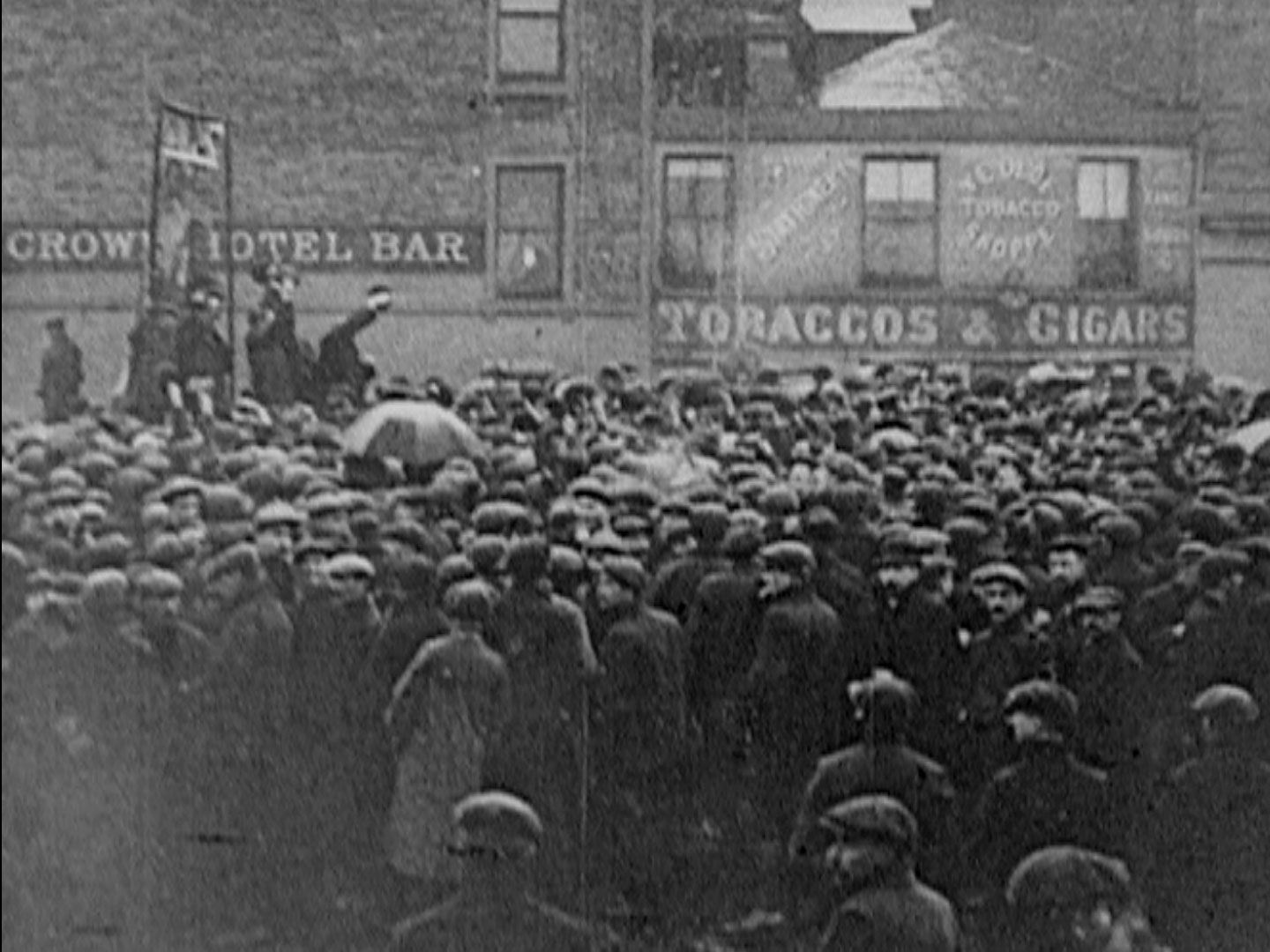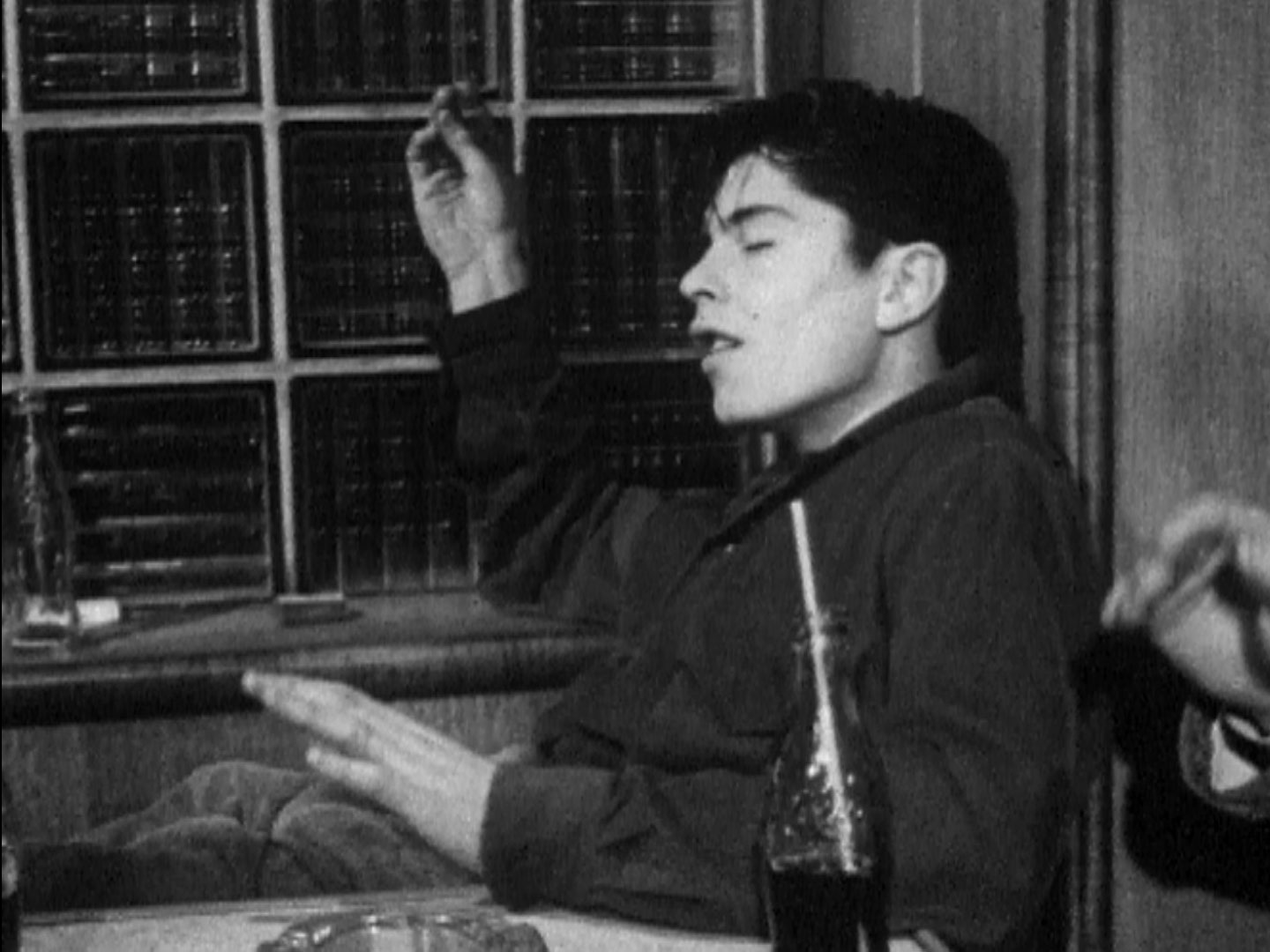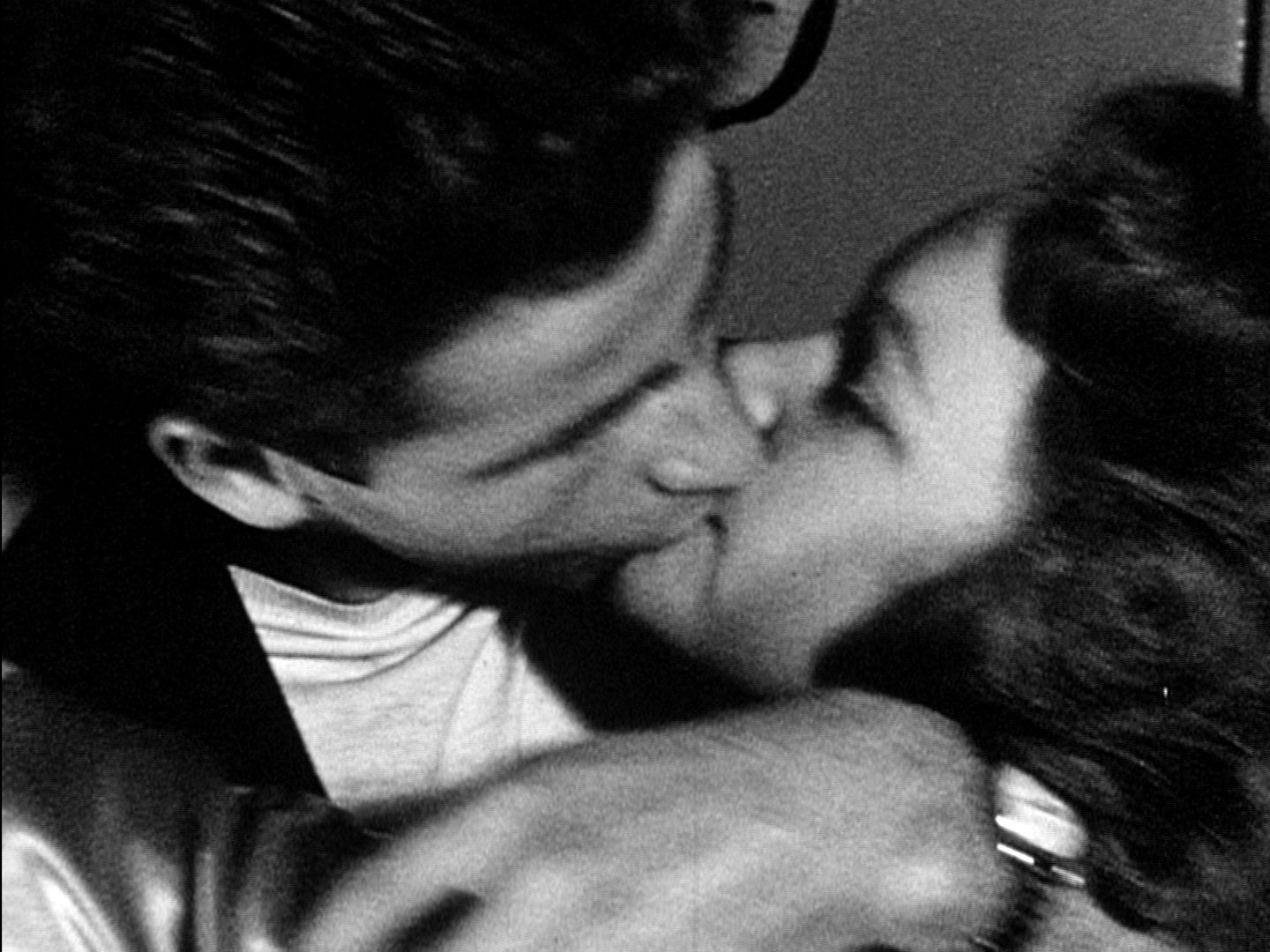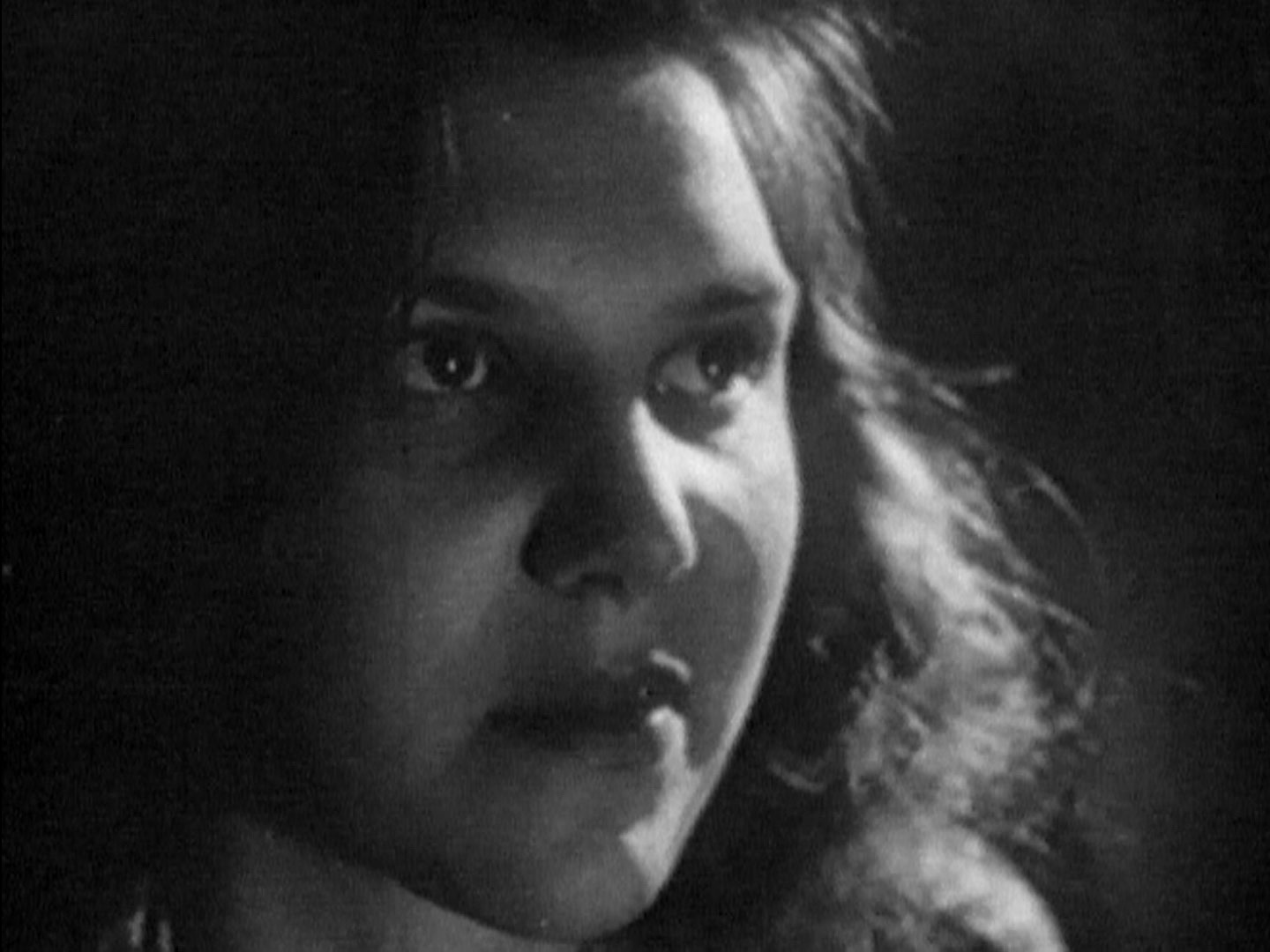Produced by Faction North, Crossover, National Library of Scotland Scottish Screen Archive in association with BBC Scotland and Creative Scotland. Soundtrack released by Domino Records on vinyl, CD and for digital download over the summer of 2014.
Something To Believe In – The Making of From Scotland With Love
When it comes to first meetings of great creative collaborations, the cafe in the Scottish Fisheries Museum, Anstruther, may not be the venue that initially springs to mind.
Whenever we’ve come to Anstruther the sun has been shining, says Virginia. It was that day. We had high hopes but no guarantees…
Read More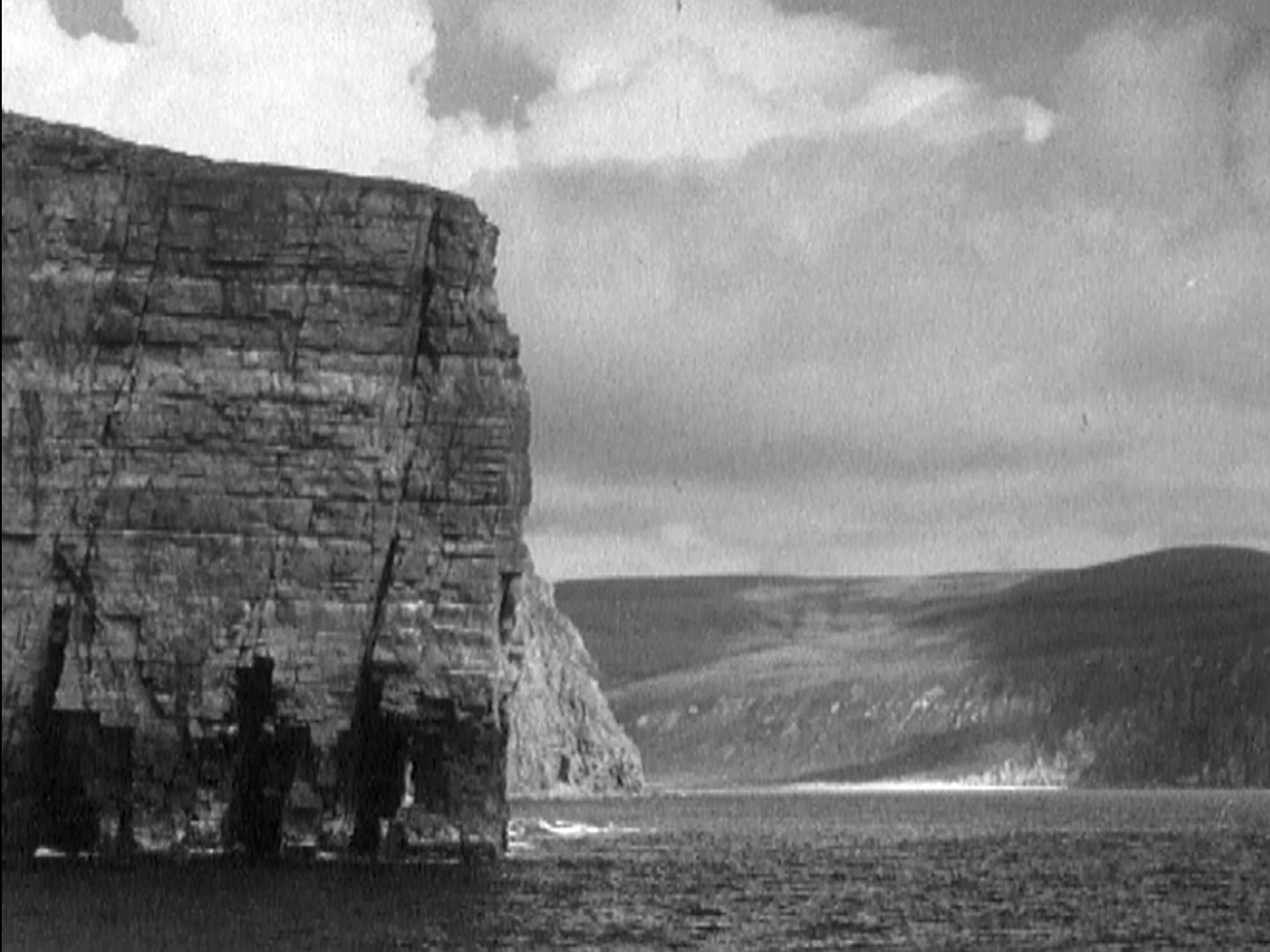
The brief for what would become “From Scotland With Love” was broad – a poetic film about Scotland using archive footage with a contemporary score but no narration or interviews. Virginia began intensive research in the Scottish Screen Archive over the summer of 2013. Stunning images from little-known archive films became sequences forming in her mind with themes such as love and loss, war, resistance, work and play. But finding the right composer to enhance the emotional story arcs was vital. Virginia had already worked with David McAulay, Music Supervisor, on another project. A trusted collaborator, he suggested King Creosote for his lyrical ability to tell stories through song. Which brought Virginia and Kenny together at that table in the cafe. “At first I said no,” says Kenny. “I wasn’t sure if my head was in the right place to write songs to order, which I’m bad at. I didn’t think I’d get the job because it’s one thing for a director to pick a song for a film and make a connection. But it’s never the connection that the songwriter originally intended.”
At first there was some convincing to do, David remembers. It was quite daunting for us all to undertake the project as there was no template for what we wanted to do. “Normally, a film like this is cut to pre-existing music. Or the composer is given the completed film to write the score. But we wanted the direction, editing and musical composition to be a dynamic, interactive process. That became the attraction – that openness, to make something special and unique.”
With a backwards handshake – a precaution from an old accident that nearly left the King one-handed – Kenny was in. “Being able to take off the KC super suit and write from other perspectives, I’d never done that before. Such as writing a song for women characters Virginia found in the archive, from a female point of view. So I put my frock and lippie on.”
“I wanted to tell Scotland’s stories from a “ground up” perspective. No visits by Kings and Queens – there was only room for one King (Creosote) in this film, smiles Virginia. And as a woman Director, I wanted to bring out the women’s stories. We had amazing footage of the fishing fleet out at sea. Wonderful images of the “fisher lassies” gutting and packing on shore. I asked Kenny to write a song from a fisher lassie’s point of view, thinking about her lover who has gone to sea, and might not come back. That became “Cargill”. A really beautiful, moving song.”
With the help of Kenny’s long time Chem 19 producer, Paul Savage, and a whiteboard, David drew up a recording timeline. “I’d done four or five albums with Paul,” says Kenny, “so I trust his taste”. David adds, “His eyebrow movement! So understated With Paul, that’s how you know if you’ve done a good, or a bad take.”
The need to give the music a widescreen cinematic feel led Kenny to go for an uncharacteristically “big” sound to emphasise key emotional moments in the film. ìI brought in musicians I knew and trusted. For example, Cellist Pete Harvey, who did amazing string arrangements, Derek O’Neill (Keyboards), Andy Robinson (Drums), Pete Macleod (bass) and Kevin Brolly (Clarinet). David adds, “Along with a string quartet, we created a choir of backing singers, and even enlisted young singers from Beatroute Arts, to create the authentic sound of young girls doing skipping songs to match images Virginia brought us from the archive.”
“Kenny often wasn’t there when Paul and me were mixing, so we’d just keep adding and adding stuff,” teases David. “Yeah, replacing all my heartfelt Spanish acoustic guitar with some crazy feedback loop!” laughs Kenny.
Starting with Kenny’s acoustic demos, and some rough cut sequences, I assembled the musicians at a residential recording studio up in Loch Fyne, recalls David. We fleshed out arrangements, as we normally would, but the poetry of the images was lingering in everyone’s heads. We played back “Miserable Strangers” with Virginia’s emigration sequence. That was the moment we knew we were totally on to something.
These rough recordings went back in to the Edit Suite and Virginia and Editor, Colin Monie, shaped the images in response to the music. Throughout the process of editing, Virginia and Kenny would send each other visual and musical sketches, with David acting as interpreter between the two. Kenny sent handwritten lyrics that affected Virginia’s cutting of the material, whilst Virginia’s “emotional temperature map” of the film suggested the kind of moods she wanted for each section. This helped Kenny trust his own immediate reaction to the images.
The archive brought out not only the vividness of the past in the present but also very much the personal. One of the powerful themes of the film is emigration, a prominent theme in Virginia’s life.
“My Scottish grandparents emigrated to New Zealand but also I’ve come back to live here from there so I really know that pain of leaving family and feeling like you’re not going to see them for a long time, even in this age! It”s still a long way”
As director and composer, Virginia and Kenny share a delight in discovering quirky characters within the archive to which the audience can relate. The train driver visiting his lover inspired the everyday tenement love song “One Floor Down” and the Friday night out sequence gave rise to Kenny’s brilliant lyric “Wayne is appearing for one night only. We all have our alter egos that only come out after dark that’s the fun of it, trying to spot where Wayne is on the dance floor,” adds Kenny.
Even without a background in many of the industries, such as shipbuilding and agriculture, depicted in the film, Kenny’s creativity enabled him to empathise with a wide variety of fellow Scots. With the song “Largs”, Kenny took his experience of witnessing his hometown of St Andrews being turned into the Glaswegian Riviera every July and simply swapped the coasts.
“I had to find the dark character, the guy who’s not taking part. And he is in there; you just have to look a bit beyond. Dark eyes, a little tashe,” says Kenny. “The one who wants to slope off with the ice cream queen.”
Virginia adds, “That sensation you have when looking back at archive, this grainy footage. It is almost like a dream. Going into the past but it feels contemporary, what the people in the footage are feeling and what they are up against.”
Kenny allows himself a rare moment of pride, even if it is cut through with his distinctive style of wry self-deprecation.
“I’m actually really chuffed with the chorus of “Largs”, verses not so much. Verses are ok but the chorus.”
“It”s a brilliant chorus,” Virginia smiles.
And she is right.
